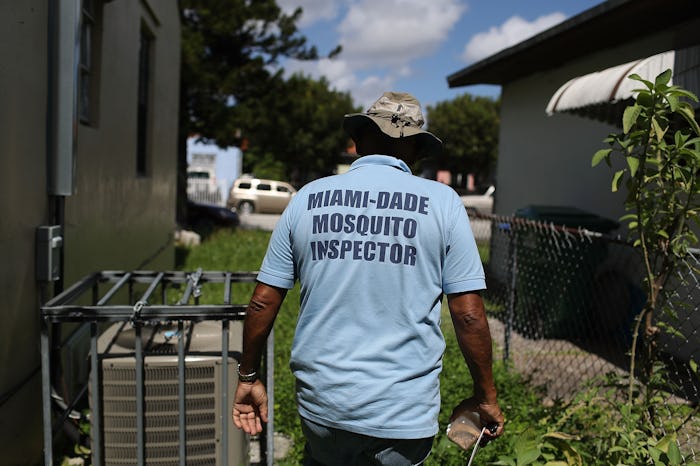Life

Is Zika Virus Still Around In The US?
After dominating headlines for much of the summer in 2016, news of the mosquito-borne disease that caused life-threatening birth defects just sort of fizzled out once temperatures dropped. So is Zika virus still around in the U.S., or did the cold take care of the problem? It turns out that mosquitoes capable of carrying the virus not only survived the winter, but the threat could be much more widespread than originally anticipated, according to new research by the Centers for Disease Control.
Aedes aegypti, the species known to transmit Zika, has now been documented in 38 additional counties in the United States. The most concentrated populations are still in southern California, Arizona, Texas, Louisiana, and Florida, but they have been spotted as far north as New Hampshire. Overall, this represents a 21 percent increase in the number of counties that could potentially see another Zika outbreak. A close relative, Aedes albopictus, is also thought to be a potential carrier, and that's even more concerning, because it can survive in cooler temperatures than its cousin. Aedes albopictus has been reported in 127 more counties than previously thought, bringing the total number of counties to 1,368. Additionally, 177 counties are home to both species, mostly in southern California, Arizona, Texas, Florida, and Maryland.
The presence of these mosquitoes only indicates the potential for Zika transmission; it does not necessarily mean that any mosquitoes or humans in those areas have tested positive for the virus. Currently, the only Zika travel warning in effect in the U.S. is for the city of Brownsville, Texas. Multiple mosquito-to-human transmissions have been documented in the city, leading the CDC to label it a "Zika cautionary area," which means that pregnant women should "consider postponing travel" to the area, while those living in Brownsville are cautioned against unprotected sex, which is another way the virus can be transmitted. All others should take the usual precautions to avoid mosquito bites: using insect repellent, wearing long sleeves and pants when possible, eliminating standing water outdoors, and using air conditioners or window screens.
The most recent scare came out of Pasadena, California, where Aedes albopictus eggs were identified for the first time on Monday, according to the Pasadena Star-News. But again, Zika has not been found in any mosquitoes or humans, and this is the lesser of the two mosquitoes; the one that could potentially carry the virus, not the one that is definitely known to carry it. While nobody should run screaming for Canada just yet, it's always a good idea to protect yourself from mosquito bites. It's just a little more important now.